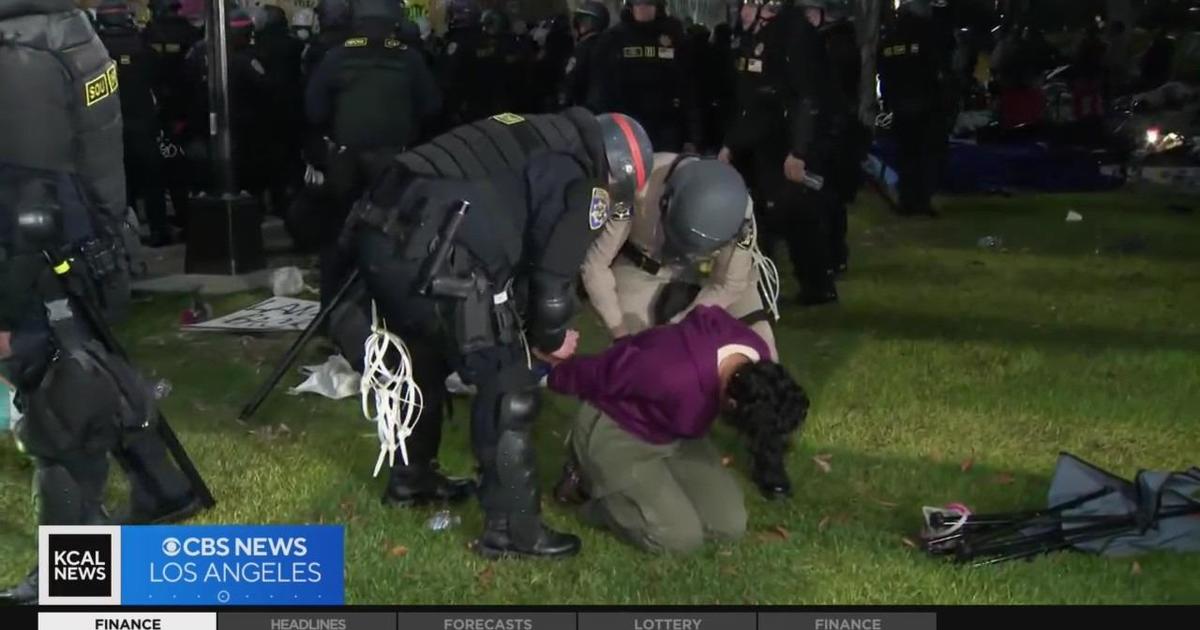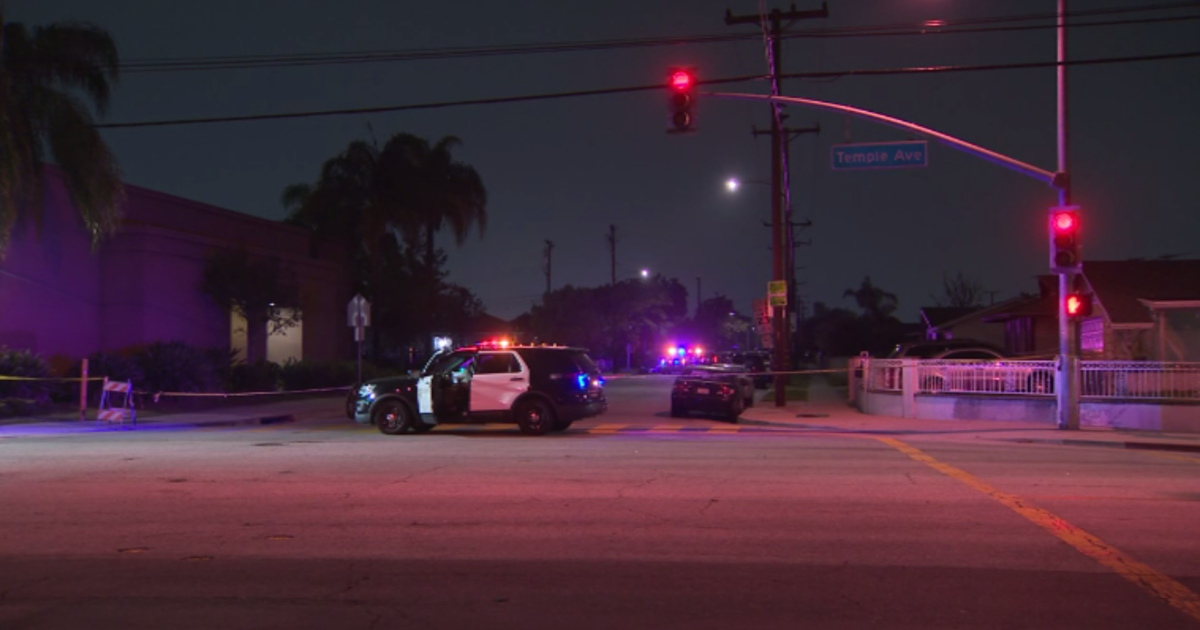Whales Entangled At Alarming Rate Along California Coast
LONG BEACH (AP) — An unusual warming in the Pacific Ocean may be having disastrous consequences for the majestic whales that use the waters off California as a migratory super-highway.
This year alone, more than 60 whales entangled in fishing gear have been spotted along the coast — a more than 400 percent spike over normal and a pattern that began in 2014. Scientists believe the whales may be following prey closer to shore as warm water influences feeding patterns, putting them on a collision course with fishermen, crabbers and lobstermen.
The situation is so dire that the crab fishery has begun working closely with state and federal agencies and environmental groups to figure out where and how the whales are running into their gear. The ocean mammals also have become entangled in gill nets and lobster gear, but authorities have identified the crab fishery as the most urgent concern.
"This time of year, the whales would be offshore but with the blob of warm water, they're right off the beach. They're right where the crabs are," said Jim Anderson, a crabber who's helping to mobilize the state's 562 licensed Dungeness crab fishermen. "You go talk to a guy who's been fishing for 40 or 50 years and he's never seen anything like it."
Whales that have rope stuck in their mouths or wrapped tightly around their fins or tail will eventually die if they can't free themselves. Highly trained volunteer rescue teams are only able to disentangle a small percentage despite tracking devices that allow them to follow the hobbled animals for miles. Many swim away and their fate is never known.
A humpback whale that was partially freed recently off La Jolla, California had line stuck in its mouth, a huge knot of rope six feet behind its tail and 200 additional feet of rope and buoys dragging behind it. Another rescued nearby had a 70-foot line looped over its tail that was connected to a lobster pot still swinging from the rope's end underwater.
Keith Yip, who volunteers as the leader of a disentanglement team sponsored by SeaWorld, was involved in both rescues. He's been called out four times in the past six weeks and has logged 10 rescues in the past two years — one-fifth of all the calls he's had in a 30-year career.
"It's another job in and of itself recently," said Yip, who is the curator of mammals at SeaWorld. "My weekend days alone just the past couple of weeks I've spent on the water."
Rather than crack down on the Dungeness crab fishery, which can bring in up to $100 million a season, state and federal agencies decided to tap into the crabbers' collective knowledge to figure out where wayward whales and fishermen are overlapping. The crab season is delayed this year because of a massive bloom of toxic algae in the Pacific, but crabbers are committed to help when the season does resume later this winter or next year.
At a training session this fall in Half Moon Bay, nearly 100 crabbers already learned how to photograph tangled whales, call them in to a hotline and then "babysit" them until authorities arrive. A best practices guide has been distributed to all crabbers.
And when crabbing does resume, fishermen will work alongside scientists on their boats to test different densities and strengths of rope and gear configurations, including a new "sinking rope" that reduces slack in the line that could entrap whales. Another pilot program will log where crabbers drop their pots on GPS-enabled iPads.
"We've got pots in the water, we've got ropes in the water and we've got whales in the water," said Anderson. "What can we do to make this a safe place for everybody?"
Environmental groups are on board, too. The cooperation comes against the backdrop of a two-decade battle between environmentalists and lobster fishermen on the East Coast that hasn't yielded answers but has financially devastated lobstermen, said Geoff Shester, California campaign director for Oceana.
It's a promising start but ultimately might not be enough, said David Anderson, captain of Capt. Dave's Whale Watching and Dolphin Safari in Dana Point, California.
Anderson, who is no relation to the crab fisherman, was among the first to realize there was a serious problem under the water when his tours kept running into distressed whales.
Now, a critical part of his work also involves documenting — and responding to — entangled whales off the Southern California coast. Anderson, who's certified by federal marine authorities as a volunteer rescuer, believes the hobbled whales here are a symptom of a larger crisis that's telegraphed to the surface with each struggling creature.
"We've had more than 50 entangled whales this year off California, but that's just the tip of the iceberg," he said. "Most of the whales we're not seeing — and it's a huge problem."
(© Copyright 2015 The Associated Press. All Rights Reserved. This material may not be published, broadcast, rewritten or redistributed.)



